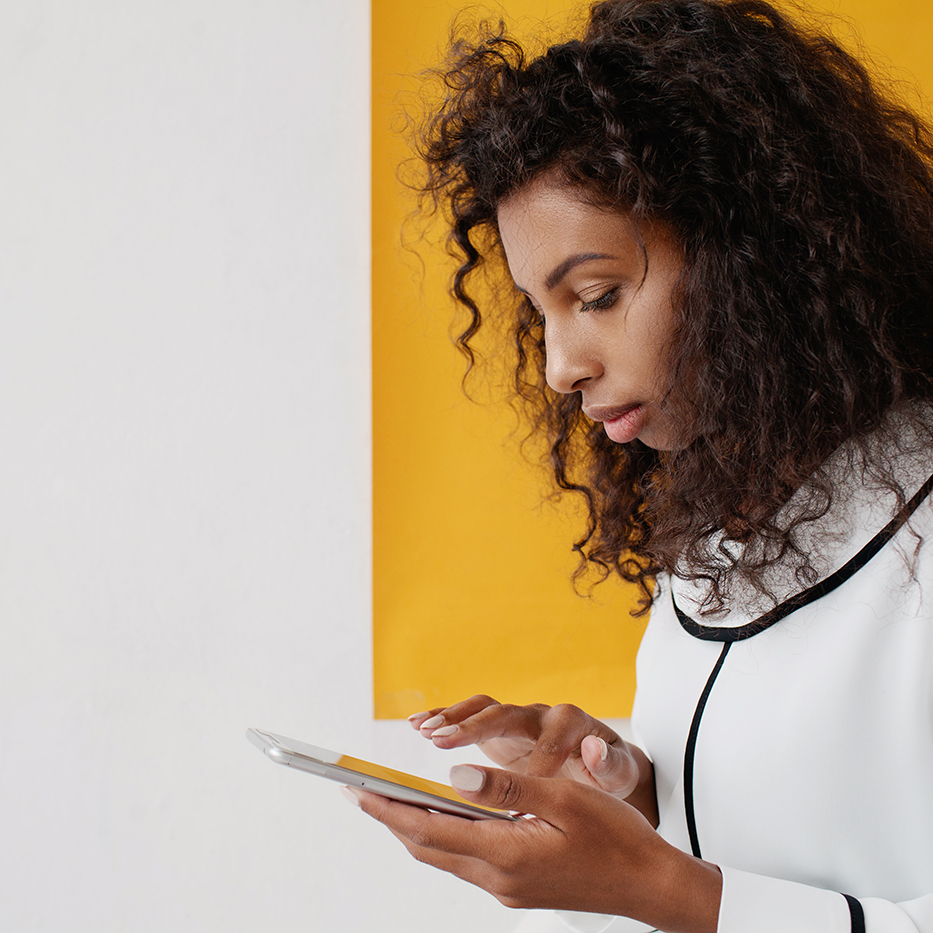This Is Your Brain on Instagram


“Instagram is a weird, weird world.”
When I asked my co-workers about how their social media habits have had an impact on their sense of self and their idea of “authenticity,” the question sparked a thoughtful, lengthy, and nuanced debate in our group chat.
But the simple observation above—voiced by a former colleague—seemed to encapsulate it all. For the innumerable and abstract ways that social media has influenced how we perceive ourselves and others, one thing is for certain: This is strange territory.
It’s something I’ve pondered extensively over the past several years from both a professional lens and a personal one, especially as social media has blossomed from a relatively harmless distraction into the ubiquitous beast we know today. My career, for example, puts me in the unique position of relying on Instagram as an extension of my livelihood.
I despise the word in this context, but it is, for better or worse, a reflection of my “brand”—a significant touchpoint for the actual larger brand I represent. And in many ways, I really enjoy this. I really value the fact that it elevates the relationship between editor and reader, and that users can actually get a glimpse of the face and personality behind my writing.
But even though I technically exercise complete control over my feed, I struggle deeply with the authenticity of the person I portray on social media because it is very much a performance. I don’t care how self-aware, autonomous, or “real” you are: You’re still curating the images and the life that you present to the world. And in my experience, grappling with the overlap between my digital and IRL self is, at best, very confusing.
It’s not just a matter of identity, but validation. As that co-worker described, Instagram is in fact a very “weird” world in that it’s a potentially dangerous and overexaggerated, oversimplified expression of the human psyche. It’s a world in which our egos are concretized as photo grids, a world in which we can actually quantify validation by way of likes.
And when we’re feeling unfulfilled in our real lives, it’s all too easy to turn to the digital version. “Sometimes when I’m bored, I’ll search for something to post because it’s this weird recognition that I swear has a chemical reaction in your brain,” says Byrdie senior editor Hallie Gould. “When the likes roll in, that’s some serious serotonin shit.”

She’s not wrong. Research shows that even just anticipating likes after immediately posting something can send a rush of feel-good dopamine to our brains. But what goes up must come down, and the science denotes that the negative feelings associated with social media use can severely outweigh the positive.
“It’s well documented in the psychological literature that social media channels can have a deleterious effect on confidence and identity,” says Heather Silvestri, a New York City–based psychologist. “Researchers have found a wide array of negative ripple effects including upticks in anxiety and depression as well as loneliness, envy, and even narcissism.”
One of the key problems is that our very dimensionality as human beings simply cannot translate to a digital medium. (If your words have ever been misconstrued over text or email, you understand.) And since true confidence lies in owning those complexities and imperfections, our self-worth becomes painfully vulnerable when we hinge too much of it on our Instagram presence, which, by its very nature can only serve as a hologram of who we really are. “Social media leaves very little opportunity for anything other than a thin veneer of (false) confidence and sense of self,” says Silvestri.
It’s a slippery slope. Once we get in the habit of hinging our self-worth on this very superficial layer of ourselves, we start to lose sight of the substance that makes us us, and in that way, we lose our grip on reality and genuine fulfillment. “There is an emptiness that creeps in,” says Silvestri. “Social media platforms propagate an echo chamber of curated images and life stories.”
It’s a shame when this anxiety eclipses the fun of social media, not to mention the potential for very genuine connection. I’ve met many wonderful friends by way of Instagram and, again, truly love the line of communication it presents to my readers. That’s also why I think it’s disingenuous to suggest that the only way out of this conundrum is to delete our feeds entirely. It’s not realistic, and it’s not necessarily the healthiest solution, either.
So… what's the alternative?
Instead, it’s important to work toward a renewed sense of autonomy that exists independently of your social media presence. A few strategies to consider:
1. Log off.
You don’t need to delete to unplug, but taking some time away from your digital hologram will help you reacquaint yourself with, well, yourself. Whether it’s a matter of hours or days (barring work requirements), try to take a breath and remember what life was like before “doing it for the ’gram” was ever acceptable vernacular. Turning off your notifications will help immensely.
2. Connect with people IRL.

“As a psychologist and therapist, I cannot stress enough how important face-to-face interaction is for us to foster an authentic sense of ourselves and others,” says Silvestri.
Log time with the people who value and love the parts of you that don’t necessarily surface on your curated feed—your insecurities, your complexities, your quirks. This is the good kind of external validation because it’s far more authentic. It also serves as an important reflection of your worth.
“It’s an experience of reality testing that is utterly absent in social media posting,” says Silvestri. “So spending real, in-person time with others is critical to actually knowing who you are and who others really are.”
3. Journal.
This exercise is especially valuable when you’re feeling crappy but can’t quite verbalize why. “I’m a big fan of taking pen to paper to journal about yourself—your actual self, ideal self, realistic self,” says Silvestri.
The key is to do so without judgment. “This exercise helps us to reflect and focus our energy on real as well as aspirational data, and if undertaken with compassion, it can foster a deep self-awareness,” she says. “Because at its core, confidence is really about self-knowledge rather than performance.”
And when you look at it that way, not giving a damn about likes is pretty badass—and way more aspirational than someone’s yacht selfie.
This story was originally published at an earlier date.
This article is provided for informational purposes only and is not intended to be used in the place of advice of your physician or other medical professionals. You should always consult with your doctor or healthcare provider first with any health-related questions.
